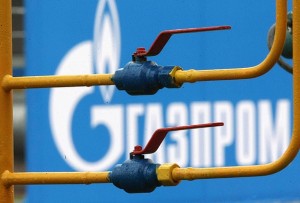Gazprom’s Relieving Disclosure
 In response to comments and premature evaluations that Turkey could be confronted with gas ruptures and suspension during the winter months, Gazprom officials retorted, declaring that “Gazprom has never ever undertaken any interruption in the flow of natural gas destined to the purchasers who are contracted under a valid and enforceable natural gas contract. And, in the particular case of Turkey, Gazprom has always demonstrated and proved sufficiently that it is ready and remains on a stand-by status at any time to intervene aptly and supply natural gas during the winter months when some impediments and encumbrances erupt with other suppliers.”
In response to comments and premature evaluations that Turkey could be confronted with gas ruptures and suspension during the winter months, Gazprom officials retorted, declaring that “Gazprom has never ever undertaken any interruption in the flow of natural gas destined to the purchasers who are contracted under a valid and enforceable natural gas contract. And, in the particular case of Turkey, Gazprom has always demonstrated and proved sufficiently that it is ready and remains on a stand-by status at any time to intervene aptly and supply natural gas during the winter months when some impediments and encumbrances erupt with other suppliers.”
Gazprom officials and executives responded to the queries posed by the correspondent of the AA (the semi-official “Anatolian News Agency”) over suggestions and implications that Turkey, Greece and Bulgaria could potentially suffer natural gas shortages and related adversities during the winter months owing to the mere pretext that adequate natural gas storage could not be effected in the underground storage basin between the Ukraine’s Neftogaz company.
Stressing that Gazprom has exerted all efforts and is also currently displaying energetic strides towards ensuring the safe and secure transit passage of the natural gas over and across the Ukraine, they noted that they have already exceeded the obligations of the contract, in a positive context, and that they had agreed to pay in advance the natural gas transit fees up until 2015. The authorities underlined the fact that this bold step was intended to facilitate the Ukraine to maintain adequate quantity of reserve natural gas in its storage plants, enabling the result that the transit passage is secured even in the coldest days, and without any exposure to any suspension or interruption of whatsoever nature, content and cause.
Replying to a specific question on whether there was a risk involving the hitches, flaws or disruption in the shipment of natural gas to Turkey in the winter months, attributable to the mentioned hindrance, the Gazprom officials provided the following explanation and elaboration:
“It should be once again emphasized that Gazprom has never ever ceased or unilaterally discontinued the flow of natural gas destined to purchasers who possess a valid and operative natural gas agreement or contract. And, in regard specifically to Turkey’s situation, it should be remembered vividly that Gazprom has always interceded under such circumstances, pledging that it is ready and more than willing to make available additional natural gas during winter months when impromptu and unforeseen setbacks and shortcomings surface with other suppliers. Another factor that should be construed as a confidence-building option entails the Blue Stream Line, which carries natural gas directly from Russia without mandatory resort to the intermediation of the transit countries. As a matter of fact, this line was used and operated at full capacity during the coldest days of winter with the ultimate purpose of meeting Turkey’s natural gas consumption.”
In the case and in the event that the conflict with Naftogaz is not appropriately resolved, Gazprom authorities furnished the following information and facts on what would Gazprom’s alternatives would encompass:
“We are of the opinion that the negotiations conducted with the Ukraine will not portray a direct threat and hazard attuned towards the natural gas transit flow that will pass through the territory of the stated country. However, we are also positioned to eliminate and alleviate even the slightest risk in this realm. By inference, that is why exactly we have constructed the North Stream Line…to obtain a semblance of flexibility and security in the supply of natural gas oriented towards Europe, and we are also at the same time pressing ahead with the relevant construction phases of the South Stream.”
